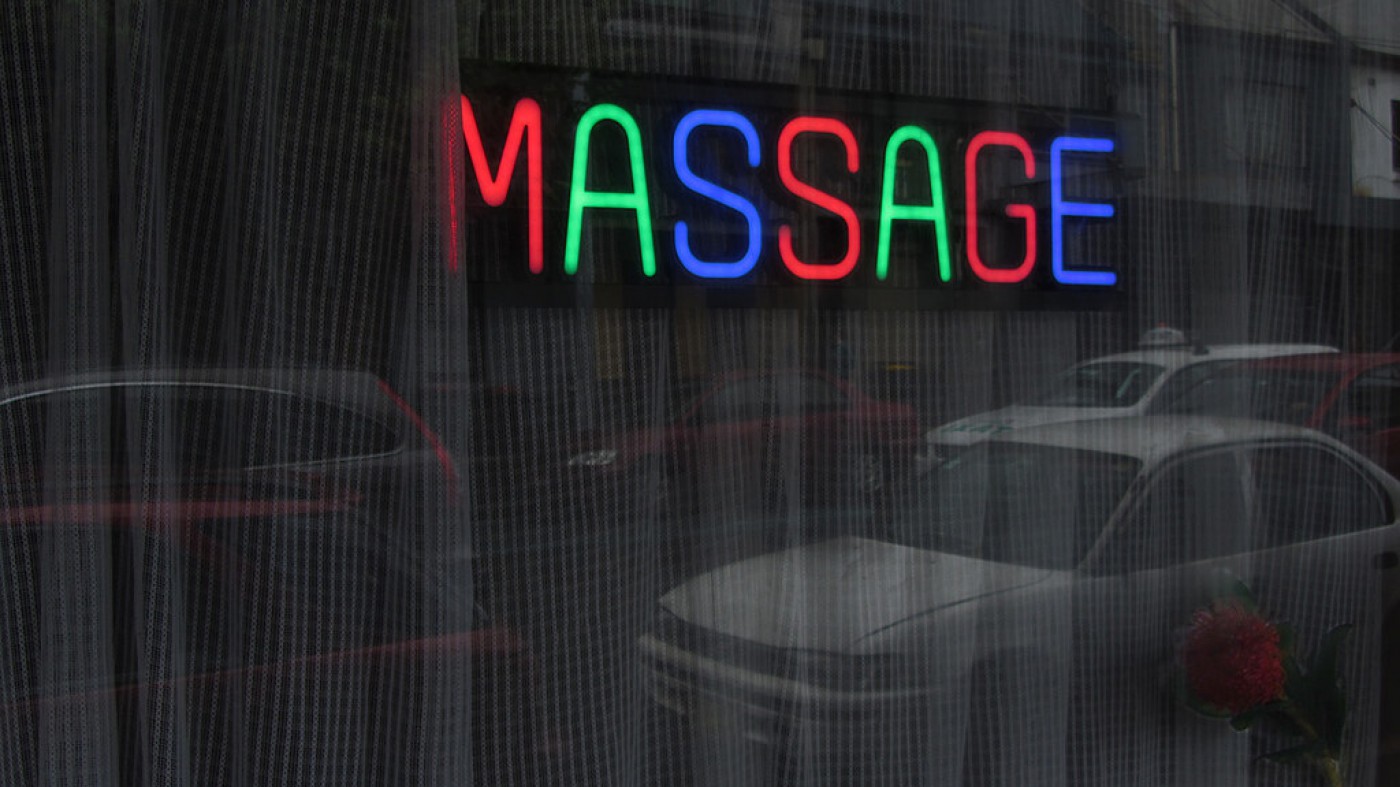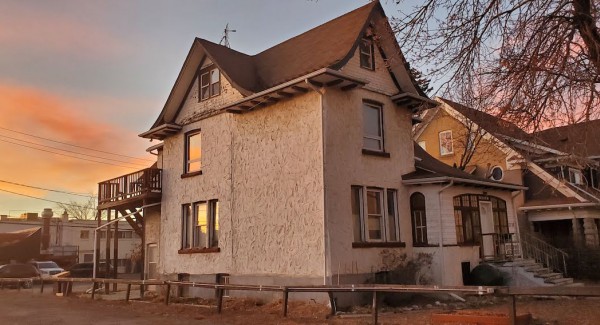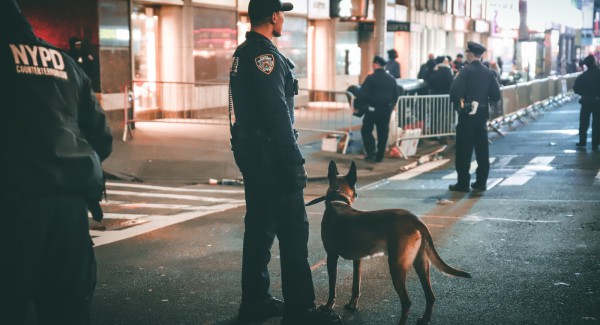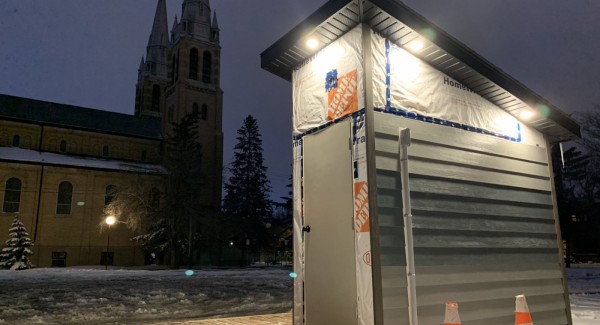City’s body rub parlour decision risks worker safety

Newtown graffiti/Flickr
“It is consenting adults in private,” writes Sammy, the owner and the sole worker at one Regina body rub parlour, reflecting on the criminalization of sex work in this country. “I don't see how [it’s] anyone else's business.” Sammy is not her real name; I am using a pseudonym to protect her privacy. We have met in person, but for this article she communicated with me over email with the help of her friend, whose English is better than hers.
Until last year, Sammy quietly ran her parlour – where she also lives – without much trouble. Located on a busy street in a commercial area in central Regina, she feels comfortable there. “I can walk to the park and around the lake every day in the summer,” she says. “I can walk downtown, or take a bus to stores in the east end. Food and convenience stores [are] close. […] I have never felt unsafe.”
There are approximately 20 body rub parlours in Regina – many of them near to Sammy’s place, or in equally busy commercial areas where it’s safer and easier to get around without a vehicle.
Soon though, a recent decision by city council will force Sammy and others to relocate to isolated industrial areas within Regina, or else leave the city or go underground.
After about a year of discussion and consultation, council voted to restrict body rub parlours to a few small areas of industrial land. The decision nearly amounts to the outright ban that several councillors were pushing for: it confines parlours to only a handful of suitable properties, and many parlour owners are not willing or able to move anyway, due to the cost and risk to their safety.
“It is consenting adults in private [...] I don't see how [it’s] anyone else's business.”
The body rub parlour discussion emerges from a 2015 decision about strip clubs. In 2014/2015, during a brief period when Saskatchewan’s liquor laws allowed stripping and alcohol sales to co-exist in the same establishment, the City of Regina received an application to open a strip club in an industrial area. The application was ultimately denied after many delegates, including church representatives, presented against the proposal.
Following council’s denial of the strip club, City of Regina employees began to investigate the licensing of other “adult services,” including massage parlours. They looked to other cities for models, consulted academic research, held private interviews and focus groups with workers and operators of local parlours (including providing translation as needed), consulted with the Regina Police Service (RPS), and held open houses. Almost every source they consulted was in favour of a harm-reduction approach – licensing the businesses in order to legitimize and de-stigmatize them, and offer more accessible health and safety supports. Feedback at public open houses, however, skewed heavily toward a ban.
The resulting recommendations from city employees included an accessible system for licensing parlour owners (but not workers, to preserve their privacy); a focus on harm reduction; and re-naming “massage parlours” to “body rub parlours” to help distinguish them from massage therapy. These were brought to the council’s Executive Committee in June 2019.
Eighteen delegates spoke at the meeting, 17 of whom were against the recommendations, with many advocating for an outright ban. They included some of the same people who spoke against the strip club. Their concerns were similar: human trafficking, organized crime, exploitation of women.
Sammy and the other workers I’ve spoken with agree human trafficking is a problem in Canada but insist they haven’t seen any evidence of it in Regina's body rub parlours. "We know all the owners and we have had regular visits from police and immigration officials over the years to check identification,” says Sammy.
Whether or not sex trafficking exists in this city, banning or criminalizing the industry is widely proven to push it underground and make the work more dangerous.
Whether or not sex trafficking exists in this city, banning or criminalizing the industry is widely proven to push it underground and make the work more dangerous.
Despite this, many delegates repeatedly claimed they were speaking in the interest of “the women,” who they saw as vulnerable, desperate victims of exploitation and trafficking.
“They are entitled to their opinion,” Sammy tells me. “Most have never talked to any of us. Have no real understanding of us or our business.”
Council was split nearly in half on this issue throughout, with about half wanting a ban and the others favouring regulation. Those who wanted a ban cited public feedback, ignoring the owners’ and workers’ concerns about a ban.
At a series of meetings between September 2019 and January 2020, council approved the development of a licensing framework, but also changed zoning bylaws to restrict the businesses to such a small area that it’s impossible for them all to move there even if they wanted to.
In December, three owner-workers provided me with a jointly written statement to read at the city council meeting. It asked council to allow them to remain where they are, in commercial zones.
“Traffic, lighting, and police presence are significantly less in the industrial zones as opposed to major corridors. […] In many locations they would be the only business open in the evenings. There is often no public transportation and many of the ladies do not have vehicles. There has been much talk in council about concern for worker safety. This proposal seems to say all that talk was meaningless.”
Council also implemented a one-block buffer from any residence, park, recreation facility, place of worship, daycare, school, library, and other body rub establishment.
“We were happy to be licensed, get background checks, inspections, etc. but now the whole thing seems like a waste of time and money by the city.”
The new rules make it extremely difficult, if not impossible, for existing parlours to keep operating in the city legally. Sammy tells me, “I have looked a little bit at new places and all are designed for warehouse or industrial use. Would require total renovation. Maybe $20,000 to $30,000 to make suitable.”
I ask her what she’ll do next. “Not sure. [...] Working from an apartment or house without a license maybe the only option,” she writes. “Many, many ladies are working out of apartments or condos now. […] The zoning rules to banish spas will just force more ladies to do the same if they want to continue to work.”
She, like most workers the City talked to, is comfortable with licensing. Sammy used to live and work in Toronto, and she tells me, “I am familiar with licensing and enforcement from Toronto. I have a license there and many times investigators come around the spa to check on conditions. I thought the report and recommendations by city staff was very good.”
Although stigma prevented the owner-workers from being more public with their concerns, they spoke privately with City staff and were hopeful that council would heed the recommendations of staff and RPS. “I think most council members have very little understanding about the spa business and based their decisions on stereotypes and misinformation,” Sammy writes. “We were happy to be licensed, get background checks, inspections, etc. but now the whole thing seems like a waste of time and money by the city.”




